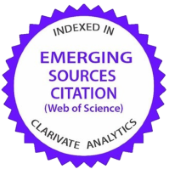Minds Think Alike: How Do Food Delivery Mobile Applications Innovate Consumer Service
DOI:
https://doi.org/10.29036/jots.v13i25.384Abstract
Food delivery mobile applications, such as UBER’S EATS and FOODPANDA mobile apps, are supported by real-time consumer transportation. The study will explain the importance of food delivery mobile apps to affect consumers’ continuance usage intention. A model with relative advantages was provided from the perspective of emotions, uses, and gratifications theory, and data collection using a food delivery mobile app that provided a survey with a hyperlink so that users would relate their experience to its use. 3,000 hyperlinks of invitations to the survey were sent out, with 431 returned. The design and relative service advantages significantly impact users, resulting in improved usage intention for mobile apps. One of the benefits is that the food delivery mobile app offers immediate services to help consumers, such as delivery or transportation. To increase efficiency, innovative food delivery mobile app link hospitality industries that achieve a one-stop service that fulfills user demand for their consumers; When the mobile app-enabled to provide precision and valuable information and create an innovative service assistant, such as a global position system and expected route of taxi and the cost, which better fulfill user needs and often leads to a higher appraisal than the previous service and enhances user intention.
Downloads
Downloads
Published
Issue
Section
License
Copyright (c) 2022 Journal of Tourism and Services

This work is licensed under a Creative Commons Attribution-NonCommercial-NoDerivatives 4.0 International License.
Journal of Tourism and Services (ISSN 1804-5650) is published by the Center for International Scientific Research of VŠO and VŠPP in cooperation with the following partners:
- Juraj Dobrila University of Pula, Faculty of Economics and Tourism, Croatia
- School of Business and Administration of the Polytechnic Institute of Setúbal, Portugal
- Szent István University, Faculty of Economics and Social Sciences, Hungary
- Pan-European University, Faculty of Business, Prague, Czech Republic
- Pan-European University, Faculty of Entrepreneurship and Law, Prague, Czech Republic
- University of Debrecen Faculty of Economics and Business, Hungary
- University of Zilina, Faculty of Operation and Economics of Transport and Communications, Slovakia
The publisher provides a free access policy to the Journal of Tourism and Services.





